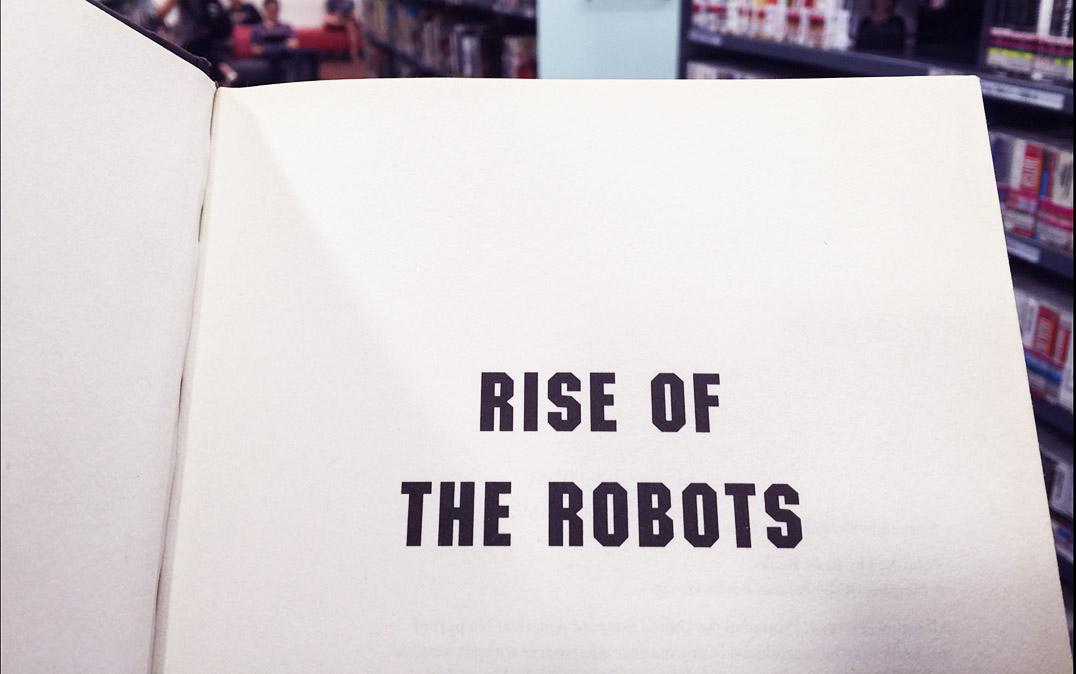
Good news: A robot is going to do your boring job for you
By Gregory CorneliusIt's natural that the excitement of having a robot complete your mundane work chores for you is tempered by a fear of the unknown. Will the robot take my pay cheque too?
According to research from McKinsey & Company, 45 percent of activities that individuals are paid to perform can now be automated by adapting current technology. Existing occupations won’t be made immediately redundant because the timelines for implementing automation are unclear, according to Michael Chui, a Silicon Valley-based author and Partner of the McKinsey Global Institute.
There is a lot of work to be done to restructure and adapt organisations before they can benefit from artificial intelligence. It takes time. "Occupations will remain intact but activities and processes will change and jobs will be redefined," he said, during a recent visit to Singapore.
Some impacts of automation are predictable. All of the middle class occupations that were created as a result of the industrial revolution can be automated to varying degrees. The manufacture of automobiles, say, created vast employment during the twentieth century as supporting industries were created around it.
It’s easy to grasp the impact of autonomous vehicles on the twenty-first century employment prospects for drivers of taxis, buses, and trucks. But what about other occupations? How will they be impacted by artificial intelligence?
Foxconn recently announced that 60,000 factory staff will go following a US$4 billion investment in automation; while Adidas may repatriate production from Asia after a successful trial of robots manufacturing shoes in Germany.
Interestingly, McKinsey found that it’s not just lower-paid activities that can be automated. It’s also possible to automate aspects of even the highest-paid occupations. Financial managers, physicians, and "even CEOs have a significant amount of activity that can be automated," said Michael Chui.
Fear of technological unemployment is compounded by popular concerns about stagnating wage growth, loss of privacy, and questions about corporate tax obligations and environmental impacts. Thomas Pikkety’s bestseller Capital in the Twenty-First Century has made inequality a popular topic of conversation at dinner parties the world over.
These concerns underpin a popular scepticism about the values of the business world. There is a risk of social unrest.
The billionaires of Silicon Valley are aware of the growing perception of unfairness that the digital revolution and the resulting consolidation of wealth has amplified. To their credit some have taken the initiative to lead a search for solutions. We approach a crossroad: find new occupations for people, or reorganise civilisation to accommodate humans having spare time on their hands to contemplate their station in life.
Navigating a way forward may require a fiscal mechanism to redistribute wealth to the general population. The concept of a Universal Basic Income (UBI) is among a few possible solutions that have been raised recently.
Twenty years ago, Jeremy Rifkin published his classic The End of Work which predicted devastating impacts from automation upon the workforce. Rifkin proposed the creation of voluntary and community-based service organisations that would create new jobs with government support.
As business and public institutions realise the productivity benefits of automation, perhaps the civil service will mitigate the social risk by employing a greater percentage of the population?
Singapore is positioned to deal with the likely impacts of automation on the workplace, said Diann-Yi Lin, McKinsey’s Managing Partner for Singapore. "However realising the benefits of automation will require a restructuring of organisations and institutions."
Government will not be immune from this impact, she inferred. The formation of the Commission on the Future Economy (CFE) is evidence that "Singapore's Government is aware of the situation and preparing as well as any nation. But the way forward is more likely public / private partnerships (than social welfare)."
Michael Chui added that it's useful to have valid data for analysis and modelling. "One thing that would be helpful is more experimentation in public policy," he said in reference to the USA.
We can see in Singapore a willingness from Government institutions to adapt. The merger of IDA and MDA into IMDA is a case in point. Singapore's Smart Nation initiative is making use of data and technological advances like the Internet of Things to deliver improved Government services.
Because of Singapore's forward-thinking and transparent Government there is a window of opportunity here. Singapore could realise a technological utopia where the digital economy generates wealth for all, while robots toil through the drudgery and heavy lifting, leaving humans free to do the things that they enjoy most.
That sounds good to me. The automated future can’t come fast enough, in my opinion. If you didn't have to go to work next week, and you had a guaranteed basic income, how would you choose to spend your time?

























 Advertise
Advertise









